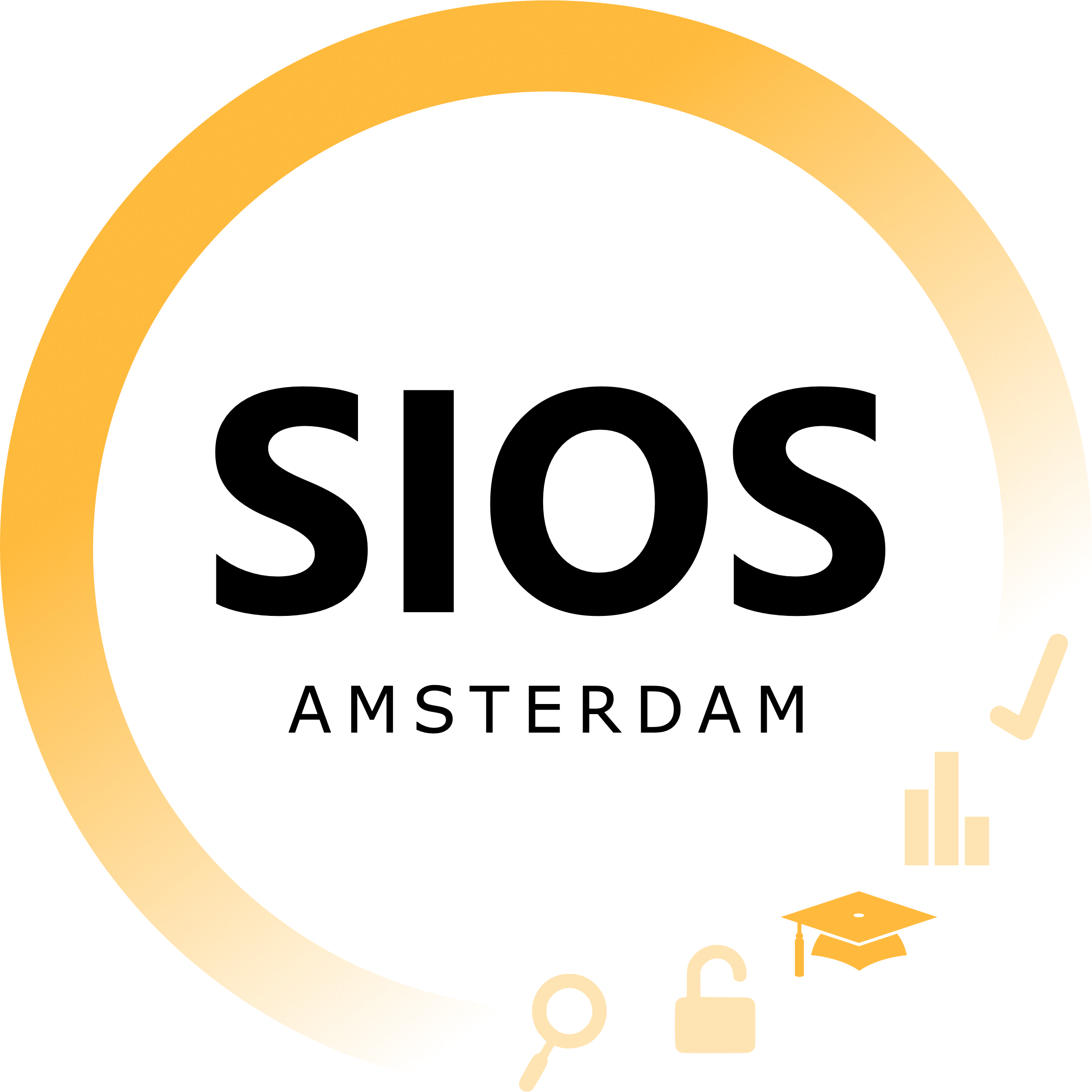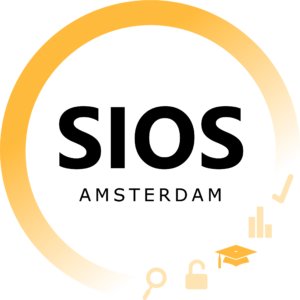
This essay is an edited and web-adapted version of an original essay for the University of Amsterdam’s RMS Psychology programme’s Good Research Practices course in December 2022, directed by Prof. Dr. E. J. Wagenmakers.
Looking back to 2010-2012, after its halcyon days, psychology was hit by a crisis. Fueled by multiple cases of fraud (see Nelson et al., 2018) and concerns about systematic problems embedded within normative research practices (Finkel & Baumeister, 2019), the foundations of the discipline seemed to fall into an abyss. With this crisis began a period of scrutiny and criticism of psychological research. However, the crisis also set in motion serious introspection, increasing awareness of questionable research practices and the strive for solutions gained momentum (Nelson et al., 2018).
Looking forward, there is reason to be optimistic. With the birth of movements and a growing audience listening to and acting on methodological reforms (Ledgerwood, 2019), psychology’s crisis is beginning to be superseded by the intellectual regeneration of the discipline – the renaissance of psychology. While progress has been considerable, there is still room for improvement. Given how much has changed in the past decade, what will the world of psychological research look like in 2032?
In this essay, I elucidate a future vision of how the renaissance of psychology can permeate the three levels (macro-/meso-/micro-level) of the research ecosystem by 2032. I will propose how macro-level (European and national policy, journals, universities), meso-level (psychological research community) and micro-level (individual researchers) can contribute to the progress of psychological science, and will conclude how each level’s reform is contingent on the interaction with the other levels.
Macro-level
Open Science Policy
European Level
Developing policies on an international and national level to facilitate open science practices constitutes a systemic requirement for transforming psychological research.
Aiming for EU-wide science reform, the European Open Science Cloud (EOSC; n.d.) works to accelerate change across scientific communities towards open science. The EOSC uses joint investments of over one billion Euros to consolidate an open virtual environment (i.e., EOSC platform) for researchers to share and reuse data, publications and software across borders, and to align policies and practices at European, national and institutional level by 2030. The EOSC’s Strategic Research and Innovation Agenda (SRIA; 2021) describes three objectives for the implementation phase 2021-2030: (1) open science practices are taught and rewarded, (2) appropriate tools and services allow researchers to access, reuse, and combine results, and (3) sustainable infrastructures are developed to enable open sharing of results.
National Level: the Netherlands
Correspondingly, the National Programme Open Science (NPOS) formulated an ambition document to transform open science in the Netherlands until 2030. The NPOS aims to achieve close collaboration between institutions, government and citizens, transparent sharing of scientific processes and making scientific outputs findable, accessible, interoperable, and reusable (FAIR). To implement these goals, the NPOS demands a scientific culture change, specifically: (1) (inter)national agreements for open technical infrastructures, (2) open science education for researchers, teachers and students, (3) making open science normative, (4) incentivizing open science through rewards, (5) creating policy to make open science mandatory. Stakeholders involved include the Dutch government, research funding organizations, and research-performing organizations (e.g., KNAW), which will monitor the progress. The concordant goals set on European and national level give reason to expect that the research ecosystem will be overhauled by 2032, contingent on the successful reform of relevant scientific domains presented in the subsequent sections.
Academic Journals
Publishing System
The need for a large-scale transformation of the academic publishing system has been formally expressed through the EOSC and NPOS’s plan to create sustainable open science infrastructures. This need has also been indicated by the research community through increasing expression of dissatisfaction with the status quo, growing initiatives to boycott big journals’ business practices, e.g., ‘The Cost of Knowledge’ (http://thecostofknowledge.com), and the development of alternatives to currently available publication options. The demand for change is driven by flaws of the current publishing system that are unsustainable in the long-run (Schimmer et al., 2015): firstly, the traditional publishing model denies people access to contents unless they belong to an institution which can afford their subscription fees (Waters, 2021). Secondly, the Gold Open Access (OA) model, which requires authors to pay publication fees to make their article publicly accessible, is gaining popularity, but places the funding burden on authors (Ellis, 2020).
If recent trends are an indicator of the future of the publishing system, academic publishing may increasingly move away from the traditional model and transform into a more equitable, non-profit system. Therefore, the next decade may be characterized by a movement towards Diamond Open Access (DOA), a publishing model in which journals do not charge fees to either authors or readers (Science Europe, 2022). According to the Open Access Diamond Journals Study’s (OADJS; Bosman et al., 2021) estimates, current DOA journals constitute 8-9% of the total article publication volume and 45% of all OA-publishing. The large-scale transformation into DOA could be achieved through (a) a clear consensus signal of the world’s eminent research organizations and (b) shifting funds from the subscription system into OA-publishing (Schimmer et al., 2015). To approach fulfillment of these conditions, the Action Plan for Diamond Open Access (APDOA) offers concrete steps towards higher efficiency, quality standards and capacity building in DOA. At the time of launch, over forty international organizations had already endorsed this action plan (Science Europe, 2022). Some Dutch universities are also taking DOA-oriented action. For instance, Utrecht University has joined ‘Subscribe to Open’, an initiative supporting existing journals in transitioning into DOA (Utrecht University Library, 2022). The University of Amsterdam (UvA) has set up a Diamond Open-Access-Fund of 100.000 Euros annually, within their ‘Open-Science-Programme 2021-2024’ (University of Amsterdam Library, 2022). Given their explicit support for DOA, these major Dutch universities may endorse the APDOA shortly.
Universities
Merit Assessment
To implement a reward system for good scientific practice, universities may reform their merit assessment of researchers to prioritize scientific rigor over citations and impact factors (Fuller et al., 2022). Current practice leads to adverse outcomes, such as prioritizing ‘quantity over quality’ (Chambers, 2017). Promising suggestions for transforming academic hiring decisions criteria have been proposed in the Declaration on Research Assessment (DORA; 2022), providing 17 recommendations (e.g., “state scientific content of paper, not impact factor”; “provide access to data”) that have been endorsed by 2680 organizations worldwide, 24 in the Netherlands, such as Utrecht University. The UvA should aim to become a signatory shortly.
Meso-level
Psychological Research Community
Crowd-Sourcing Psychological Science
Until 2030, the EOSC and NPOS aim for close collaboration between research institutions. Currently, most psychological research follows a vertical model: studies are carried out by small teams from specific labs, operating independently from other teams (Uhlmann et al., 2019). Conducting science vertically can be limiting as individual teams do not usually have access to sufficient resources to conduct large-scale projects, posing restrictions to sample size and statistical power (Uhlmann et al., 2019). To overcome these limitations, psychological science may become increasingly crowd-sourced in coming years. Crowd-sourcing can contribute to different stages of the research process. During ideation – the process of defining a project’s purpose, to collectively select the ideas of broadest impact (Uhlmann et al., 2019). Crowd-sourcing can facilitate assembling resources by aggregating skills and assets (e.g., funds, participants). To crowd-source data analysis, one dataset can be analyzed by numerous scientists testing the same hypothesis with different statistical approaches, to assess how different choices affect research outcomes. Recent examples of large-scale collaborative projects include the Reproducibility Project (Open Science Collaboration, 2015) and the ManyLabs project (e.g, Klein et al., 2018).
Micro-level
Individual researchers
Good Research Practices
The evidence of frequent bad research practices in psychology (Nosek et al., 2015) might be sobering. However, the fact that openness and transparency are recognized as vital aspects of science (Miguel et al., 2014) and most scientists claim to embrace these values (Anderson et al., 2007), gives reason to believe that researchers are genuinely interested in practicing good science.
Two indicators forebode an overhaul of research practices: firstly, we are already witnessing present-day shifts in disciplinary norms within the psychological community (Nosek & Linday, 2018) and, secondly, both the EOSC and NPOS aim to create policy to make open science practices mandatory. Therefore, if we look over any given psychology researcher’s shoulder in 2032, we may observe the use of the following subset of methodological tools.
Appreciating the importance of power (e.g., Maxwell, 2004), the researcher will attempt to maximize statistical power to increase their planned study’s informational value, e.g. by boosting sample sizes (Ledgerwood, 2019). Participating in open science will be a matter of course to the researcher. Hence, the researcher will pre-register their planned study and subsequently report their practices through sharing details of methodology and decisions made throughout the research process (Reischer & Cowan, 2020). The researcher will acknowledge the value of reflecting on and reporting personal and contextual biases (‘positionality’) that may affect research design or interpretation (e.g. Field & Derksen, 2021). The researcher will share their data safely (e.g., anonymization, checked by data stewards; Boeckhout et al., 2018), for reuse and transparency. By 2032, the researcher may work in an environment where such research practice is not only commendable but a normative standard.
Integration of the Three Levels
This vision of the three-level renaissance of psychological science throughout the next decade will be contingent on interaction between all levels. Each level will need to influence and be influenced by the other to progress. The macro-level needs to create an incentive structure (through policy, journal regulations) to facilitate large-scale collaboration (meso-level) and encourage slow, robust research practices (micro-level). The meso-level needs to act as an intermediary to collectively translate regulations (macro-level) into individual researchers’ optimal practice (micro-level) and vice versa. The individual researchers form the grassroots of science reform through self-organized groups that initiate change (macro-level) that eventually translates onto policy level (macro-level).
This essay is an edited and web-adapted version of an original essay for the University of Amsterdam’s RMS Psychology programme’s Good Research Practices course in December 2022, directed by Prof. Dr. E. J. Wagenmakers.
Looking back to 2010-2012, after its halcyon days, psychology was hit by a crisis. Fueled by multiple cases of fraud (see Nelson et al., 2018) and concerns about systematic problems embedded within normative research practices (Finkel & Baumeister, 2019), the foundations of the discipline seemed to fall into an abyss. With this crisis began a period of scrutiny and criticism of psychological research. However, the crisis also set in motion serious introspection, increasing awareness of questionable research practices and the strive for solutions gained momentum (Nelson et al., 2018).
Looking forward, there is reason to be optimistic. With the birth of movements and a growing audience listening to and acting on methodological reforms (Ledgerwood, 2019), psychology’s crisis is beginning to be superseded by the intellectual regeneration of the discipline – the renaissance of psychology. While progress has been considerable, there is still room for improvement. Given how much has changed in the past decade, what will the world of psychological research look like in 2032?
In this essay, I elucidate a future vision of how the renaissance of psychology can permeate the three levels (macro-/meso-/micro-level) of the research ecosystem by 2032. I will propose how macro-level (European and national policy, journals, universities), meso-level (psychological research community) and micro-level (individual researchers) can contribute to the progress of psychological science, and will conclude how each level’s reform is contingent on the interaction with the other levels.
Macro-level
Open Science Policy
European Level
Developing policies on an international and national level to facilitate open science practices constitutes a systemic requirement for transforming psychological research.
Aiming for EU-wide science reform, the European Open Science Cloud (EOSC; n.d.) works to accelerate change across scientific communities towards open science. The EOSC uses joint investments of over one billion Euros to consolidate an open virtual environment (i.e., EOSC platform) for researchers to share and reuse data, publications and software across borders, and to align policies and practices at European, national and institutional level by 2030. The EOSC’s Strategic Research and Innovation Agenda (SRIA; 2021) describes three objectives for the implementation phase 2021-2030: (1) open science practices are taught and rewarded, (2) appropriate tools and services allow researchers to access, reuse, and combine results, and (3) sustainable infrastructures are developed to enable open sharing of results.
National Level: the Netherlands
Correspondingly, the National Programme Open Science (NPOS) formulated an ambition document to transform open science in the Netherlands until 2030. The NPOS aims to achieve close collaboration between institutions, government and citizens, transparent sharing of scientific processes and making scientific outputs findable, accessible, interoperable, and reusable (FAIR). To implement these goals, the NPOS demands a scientific culture change, specifically: (1) (inter)national agreements for open technical infrastructures, (2) open science education for researchers, teachers and students, (3) making open science normative, (4) incentivizing open science through rewards, (5) creating policy to make open science mandatory. Stakeholders involved include the Dutch government, research funding organizations, and research-performing organizations (e.g., KNAW), which will monitor the progress. The concordant goals set on European and national level give reason to expect that the research ecosystem will be overhauled by 2032, contingent on the successful reform of relevant scientific domains presented in the subsequent sections.
Academic Journals
Publishing System
The need for a large-scale transformation of the academic publishing system has been formally expressed through the EOSC and NPOS’s plan to create sustainable open science infrastructures. This need has also been indicated by the research community through increasing expression of dissatisfaction with the status quo, growing initiatives to boycott big journals’ business practices, e.g., ‘The Cost of Knowledge’ (http://thecostofknowledge.com), and the development of alternatives to currently available publication options. The demand for change is driven by flaws of the current publishing system that are unsustainable in the long-run (Schimmer et al., 2015): firstly, the traditional publishing model denies people access to contents unless they belong to an institution which can afford their subscription fees (Waters, 2021). Secondly, the Gold Open Access (OA) model, which requires authors to pay publication fees to make their article publicly accessible, is gaining popularity, but places the funding burden on authors (Ellis, 2020).
If recent trends are an indicator of the future of the publishing system, academic publishing may increasingly move away from the traditional model and transform into a more equitable, non-profit system. Therefore, the next decade may be characterized by a movement towards Diamond Open Access (DOA), a publishing model in which journals do not charge fees to either authors or readers (Science Europe, 2022). According to the Open Access Diamond Journals Study’s (OADJS; Bosman et al., 2021) estimates, current DOA journals constitute 8-9% of the total article publication volume and 45% of all OA-publishing. The large-scale transformation into DOA could be achieved through (a) a clear consensus signal of the world’s eminent research organizations and (b) shifting funds from the subscription system into OA-publishing (Schimmer et al., 2015). To approach fulfillment of these conditions, the Action Plan for Diamond Open Access (APDOA) offers concrete steps towards higher efficiency, quality standards and capacity building in DOA. At the time of launch, over forty international organizations had already endorsed this action plan (Science Europe, 2022). Some Dutch universities are also taking DOA-oriented action. For instance, Utrecht University has joined ‘Subscribe to Open’, an initiative supporting existing journals in transitioning into DOA (Utrecht University Library, 2022). The University of Amsterdam (UvA) has set up a Diamond Open-Access-Fund of 100.000 Euros annually, within their ‘Open-Science-Programme 2021-2024’ (University of Amsterdam Library, 2022). Given their explicit support for DOA, these major Dutch universities may endorse the APDOA shortly.
Universities
Merit Assessment
To implement a reward system for good scientific practice, universities may reform their merit assessment of researchers to prioritize scientific rigor over citations and impact factors (Fuller et al., 2022). Current practice leads to adverse outcomes, such as prioritizing ‘quantity over quality’ (Chambers, 2017). Promising suggestions for transforming academic hiring decisions criteria have been proposed in the Declaration on Research Assessment (DORA; 2022), providing 17 recommendations (e.g., “state scientific content of paper, not impact factor”; “provide access to data”) that have been endorsed by 2680 organizations worldwide, 24 in the Netherlands, such as Utrecht University. The UvA should aim to become a signatory shortly.
Meso-level
Psychological Research Community
Crowd-Sourcing Psychological Science
Until 2030, the EOSC and NPOS aim for close collaboration between research institutions. Currently, most psychological research follows a vertical model: studies are carried out by small teams from specific labs, operating independently from other teams (Uhlmann et al., 2019). Conducting science vertically can be limiting as individual teams do not usually have access to sufficient resources to conduct large-scale projects, posing restrictions to sample size and statistical power (Uhlmann et al., 2019). To overcome these limitations, psychological science may become increasingly crowd-sourced in coming years. Crowd-sourcing can contribute to different stages of the research process. During ideation – the process of defining a project’s purpose, to collectively select the ideas of broadest impact (Uhlmann et al., 2019). Crowd-sourcing can facilitate assembling resources by aggregating skills and assets (e.g., funds, participants). To crowd-source data analysis, one dataset can be analyzed by numerous scientists testing the same hypothesis with different statistical approaches, to assess how different choices affect research outcomes. Recent examples of large-scale collaborative projects include the Reproducibility Project (Open Science Collaboration, 2015) and the ManyLabs project (e.g, Klein et al., 2018).
Micro-level
Individual researchers
Good Research Practices
The evidence of frequent bad research practices in psychology (Nosek et al., 2015) might be sobering. However, the fact that openness and transparency are recognized as vital aspects of science (Miguel et al., 2014) and most scientists claim to embrace these values (Anderson et al., 2007), gives reason to believe that researchers are genuinely interested in practicing good science.
Two indicators forebode an overhaul of research practices: firstly, we are already witnessing present-day shifts in disciplinary norms within the psychological community (Nosek & Linday, 2018) and, secondly, both the EOSC and NPOS aim to create policy to make open science practices mandatory. Therefore, if we look over any given psychology researcher’s shoulder in 2032, we may observe the use of the following subset of methodological tools.
Appreciating the importance of power (e.g., Maxwell, 2004), the researcher will attempt to maximize statistical power to increase their planned study’s informational value, e.g. by boosting sample sizes (Ledgerwood, 2019). Participating in open science will be a matter of course to the researcher. Hence, the researcher will pre-register their planned study and subsequently report their practices through sharing details of methodology and decisions made throughout the research process (Reischer & Cowan, 2020). The researcher will acknowledge the value of reflecting on and reporting personal and contextual biases (‘positionality’) that may affect research design or interpretation (e.g. Field & Derksen, 2021). The researcher will share their data safely (e.g., anonymization, checked by data stewards; Boeckhout et al., 2018), for reuse and transparency. By 2032, the researcher may work in an environment where such research practice is not only commendable but a normative standard.
Integration of the Three Levels
This vision of the three-level renaissance of psychological science throughout the next decade will be contingent on interaction between all levels. Each level will need to influence and be influenced by the other to progress. The macro-level needs to create an incentive structure (through policy, journal regulations) to facilitate large-scale collaboration (meso-level) and encourage slow, robust research practices (micro-level). The meso-level needs to act as an intermediary to collectively translate regulations (macro-level) into individual researchers’ optimal practice (micro-level) and vice versa. The individual researchers form the grassroots of science reform through self-organized groups that initiate change (macro-level) that eventually translates onto policy level (macro-level).





